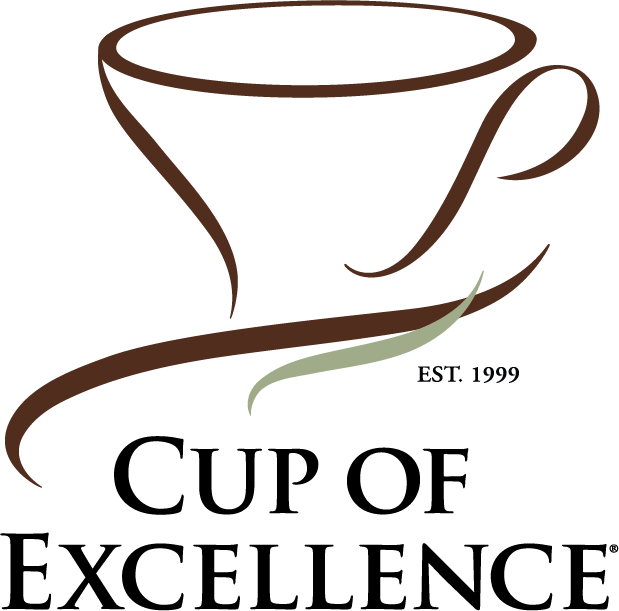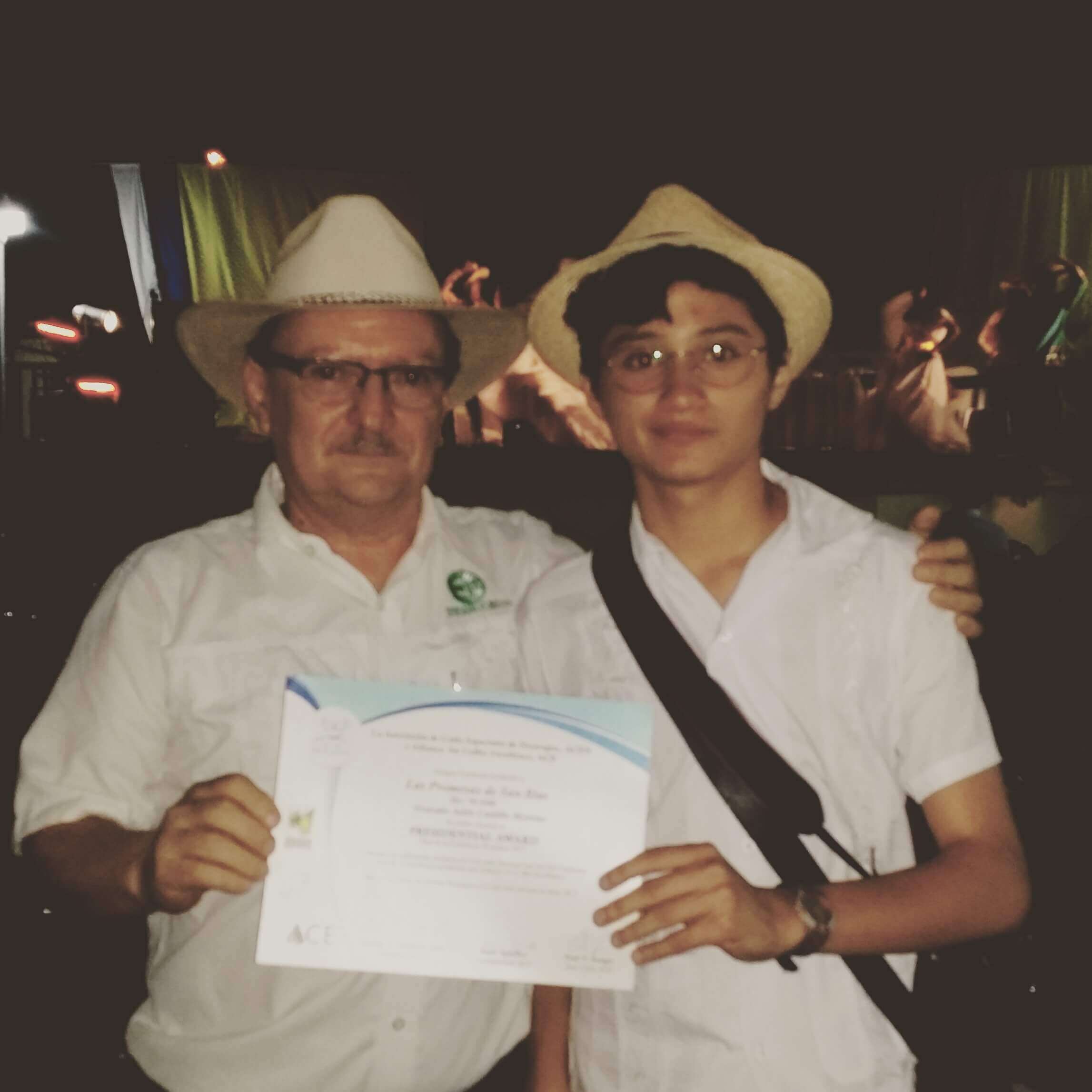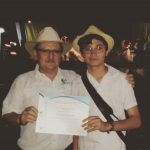90.50
Farm: Las Promesas de San Blas
Coffee producer: Gonzalo Adán Castillo Moreno
Tell us what’s the story of the farm?
Owner: Gonzalo Castillo small coffee producer with experience of 35 years, in organic coffee and organic coffee. The farm has an extension of 26 mz bought in 2010, in total, where there are 2 mz of cultivated pine forest, 23 mz of coffee and 1 mz of infrastructures, sandy loam soils, It is located in an area where it is produced from the best Nicaragua n coffees, at a height of 1,100 to 1,250 meters above sea level, was planted in full in 2011, with varieties of hybrids produced by the ECOM group in Nicaragua , we have varieties such as: H1 or Central American, H3, Marsellesa and Caturra . The winning coffee of the Cup of excellence 2017 is of the variety H1 or Central America. At present it has two permanent workers, employs up to 50 temporary workers in the different agronomic and agroindustrial tasks (cutting, pulping, washing and packing). It is always prioritized in the less heavy tasks to hire women around especially mothers Single mothers as a policy established for the benefit of these mothers. Control and use Agrochemicals: The farm is fertilized to the ground up to four times in the agricultural year, trying to distribute the needs of the plantations according to their nutritional demands based on soil analysis that are done every two years. They are made from two to three foliar applications of nutritional microelements. In areas where there are soil problems, a mixture of coffee pulp is decomposed with organic products and lombri-humus that is produced in another property of our property, which we have had excellent. Our employees use protective equipment in the different tasks of the farm. Control of weeds is done manually, making in the years of three to four manual cleanings, which generates sufficient use of labor and less pollution of the environment, although this makes the cost of production higher. They maintain a constant management of the shade, trying to manage the shade of up to 30 to 35%, as a way to contribute to mitigate the climatic changes. The most commonly used shade species are: erythrines, ingas, musaceae, nuts, citrus, avocados, wild species of the area. It carries out permanent monitoring of pests and diseases and therefore treats the control in a preventive way, such as rust and iron stain, which are the most common. Control of the drill is performed with cultural tasks and the use of traps with non-polluting attractants. Processes: The grain cutting process begins at the end of December and lasts until mid-March, four cuts of five grains, Trying to cut only the very ripe red grain, used a traditional wet benefit, water is recycled in a simple way Using two plastic tanks and a motor pump with which we have reduced up to 75% the use of water to eliminate and thus Contaminate the minimum water. The coffee pulp is used for three uses, to make manure, dehydrate it and store it to be used as food for cattle in summer (cattle and pig) and we are entering the export for which we have already sent a sample for Farm offers Is in the CAFE PRACTICE AND UTZ sustainability programs (certificates). For three years In the year 2015 I am among the finalists of the Cup of Excellence, in the year 2016 I won 12 places of the Café Mas Finos of Nicaragua and in the years 2017 we won the Second Place Cup of Excellence, the production in General have a High consistency In its coffee qualities, where 75% of the total production of the farm is above 83 points. Our farm consists of a meteorological station for forecasts and meteorological records, which can be accessed through the Internet Field trips are held with producers and students of the Café School, where we exchange and share the experiences of our farm, Processes, weather station, conservation and forest management, certifications.
Family generations:
My uncles and my grandparents were of peasant origin and cultivated coffee, basic grains and small-scale livestock, during my school holidays I spent with them helping the different crops, including coffee.
What's that secret that made you win the contest?
I learned from my family and small producers the culture of working coffee well, by lot, by variety, and it is a tradition to always do the best that can be done in every process of the coffee production chain, from the selection of lots to Planting, the right variety, good agronomic management, cutting only the red (mature) coffee, making an excellent process of wet benefit (pulped, fermented, washed, chosen in African beds, a good classification), produce in harmony with our nature . Train, train and teach our collaborators the best practices to have good qualities.
How you feel to be one of the winners?
Wonderful, it is a recognition of the work done by our collaborators, my family and God the Father.
In what you're gonna invest the profit of the electronic auction?
In the improvements of our farm, in social investments to our collaborators, in the protection of the environment, to pay some debts that we have of drags and in the family.
Have you ever participated in the contest before? Did you win?
-Yes, I have participated in other occasions with my other property Las Flores, Pueblo Nuevo, Estelí, which has been winner in two competitions and finalists in others. With our property Las Promesas once we were finalist among the best 60, in the year 2016 was deserving of the 12th place in the Contest The Coffee Mas Finos of Nicaragua (that year this contest replaced the Mug of Excellence)
What do you think about cup of excellence?
It is a program of the best that I have known and I have participated actively, it promotes to the internal of our country a very healthy competition between us the producers, directed to produce every day better qualities, and it is a promotion or marketing of our special coffee at level International, where Nicaragua is recognized by the world of toasters or buyers of excellent quality coffee.
| Rank | 2b |
|---|---|
| Farm Name | Las Promesas de San Blas 2017 |
| Farmer/Rep. | Gonzalo Adán Castillo Moreno |
| Country | Nicaragua |
| Year | 2017 |
| Size (30kg boxes) | 12 |
| City | Dipilto |
| Region | Nueva Segovia |
| Program | Nicaragua 2017 |
| Month | - |
| Aroma/Flavor | Cinnamon, peach, cherries, raspberry, stone fruits, rum chocolate, hazelnuts, raisins, fig, pineapple, peach, lime. |
| Acidity | Lactic, complex fruits, balanced. |
| Other | Transparent, long-lasting, balanced, improves as it cooled, strawberry, winey aftertaste. |
| Processing system | Honey |
| Variety | CentroAmericano H1 |
| Farm Size | - |
| Auction Lot Size (lbs.) | 793.65 |
| High bid | 15.00 |
| Total value | 11904.75 |
| High bidders | Time's Club, Inc. , Coffee Libre |



















